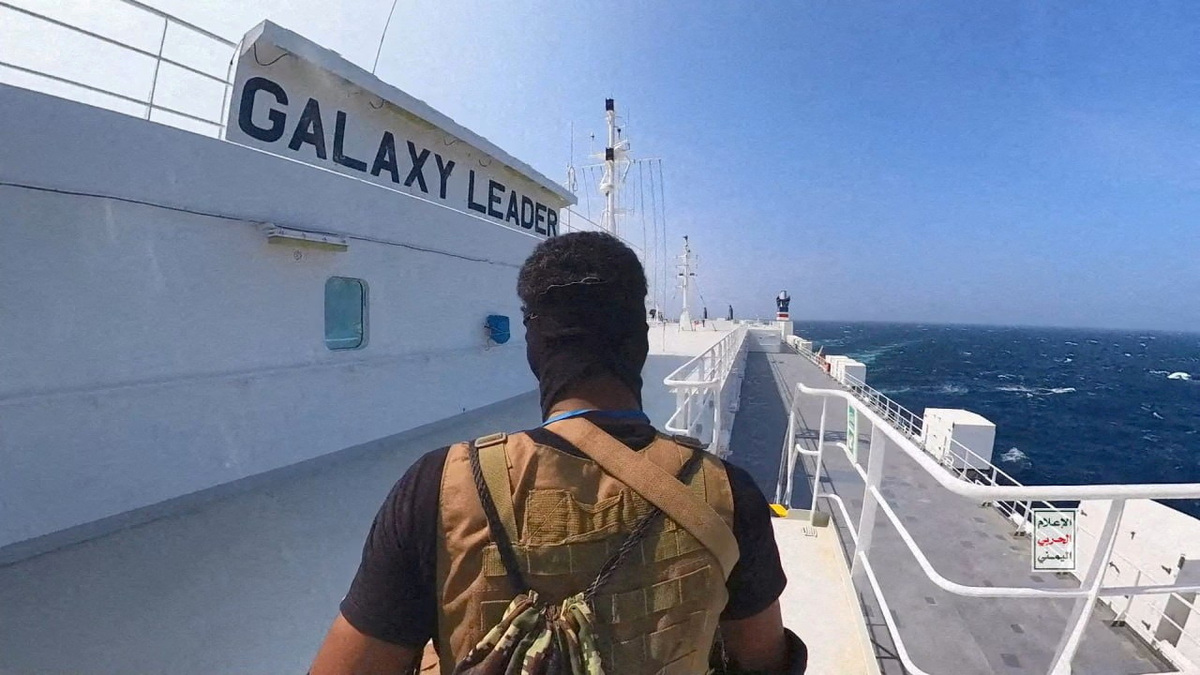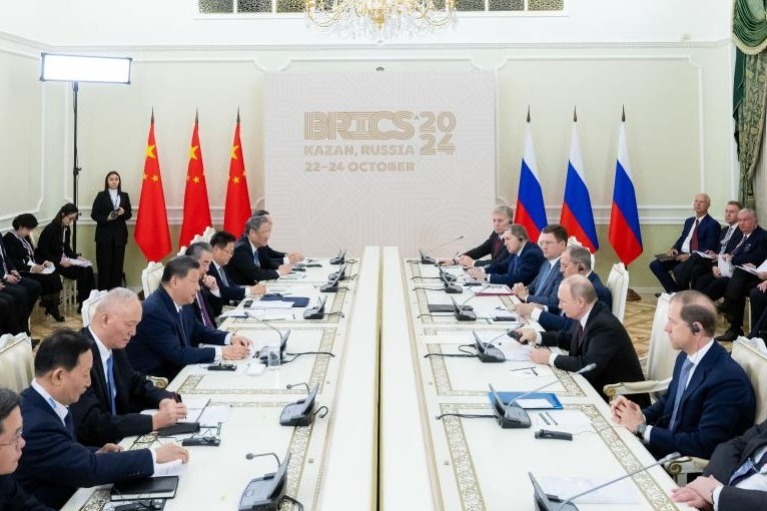Red Sea crisis mounts pressure on Asia trade
Intensified strikes disrupt shipments, lead to freight rate spikes, experts say
By PRIME SARMIENTO in Hong Kong and LEONARDUS JEGHO in Jakarta | CHINA DAILY | Updated: 2024-01-31 07:11

The ongoing Red Sea crisis is putting pressure on Asian exporters, especially those that primarily ship to Europe, analysts said, adding that intensified attacks have disrupted shipping routes, caused shipping delays, and increased freight rates.
The Yemeni Houthi group's attacks on ships in the Red Sea in protest against Israeli strikes in Gaza and responsive attacks from US and UK military have disrupted global container shipping, especially along the critical Asia-Europe corridor, according to BMI Research.
BMI said in its January report that the disruptions have pushed ships to reroute, raised shipping costs, and increased transit times.
"We forecast that freight rates will stay high, largely influenced by the Asia-Europe rates, as ongoing conflict risks in the region remain," BMI said.
Josua Pardede, chief economist at the Jakarta-based Permata Bank, said that in terms of total trade volume, the impact of the Red Sea crisis is minimal as the European Union is not Indonesia's largest trading partner.
However, Indonesian exporters of palm oil and footwear, which have huge European markets, would be hurt by increased shipping costs.
"We see a rise in global transportation costs, as seen through the Freightos Baltic Global Container Index that has increased 155.6 percent from late December 2023's level," Pardede told China Daily.
In addition, global prices of crude oil have increased due to the Middle East conflict, he said. "This potentially pushes up domestic inflation to a higher level. If the conflict continues to escalate, and consequently oil prices remain high, this will pose a risk to our state budget."
The Suez Canal accounts for about 15 percent of global trade and 20 percent of container trade, according to the United Nations Conference on Trade and Development.
The outbreak of the Israel-Palestine conflict last October has pushed Yemen's Houthi group to launch attacks against ships passing through the Red Sea toward the Suez Canal. The agency said the attacks have slashed Suez Canal trade volume by 42 percent since November.
Extra days
In order to avoid attacks, vessels go via the Cape of Good Hope in South Africa but this route adds 14 days to Asia-Europe voyages, according to S&P Global Commodity Insights data.
The longer shipping route has increased freight costs. The Drewry World Container Index increased by 5 percent to $3,964 per 40ft container in the week ending Jan 25, the highest rate recorded since October 2022.
China's Foreign Ministry spokesman Wang Wenbin said the Red Sea is an important international trade route for goods and energy.
"We do not hope to see tensions in the region, call for a halt to the harassment and attacks on civilian ships," he told a daily briefing on Tuesday.
"The root cause for the escalation of the situation in the Red Sea lies in the spillover effect of the Gaza conflict. A speedy end to the conflict in Gaza will help ease the situation in the Red Sea."
Benny Soetrisno, chairman of the Indonesian Exporters Association, said they had seen a significant rise in transportation costs, as much as 40 percent, owing to the Red Sea crisis, according to a report on Indonesian news website Bisnis.com. He said the higher shipping cost has slowed demand from Europe.
Fitch Ratings said market conditions for European chemicals, which are dependent on Asian imports, have already fallen from top-of-the-cycle to below mid-cycle owing to a weaker global economy and destocking across the chemical supply chain.
For natural gas exporters like Qatar, the Suez Canal is important as this route is usually used to ship liquefied natural gas to Europe. Qatar accounted for 16 percent of total European LNG imports last year, according to Dutch investment bank ING.
ING noted that LNG trade flows might change if the Red Sea tension continues to escalate. "These flows will avoid the Red Sea and will not have to take the longer route around South Africa," ING said.
Contact the writers at prime@chinadailyapac.com.
Leonardus Jegho is a freelance journalist for China Daily.
























